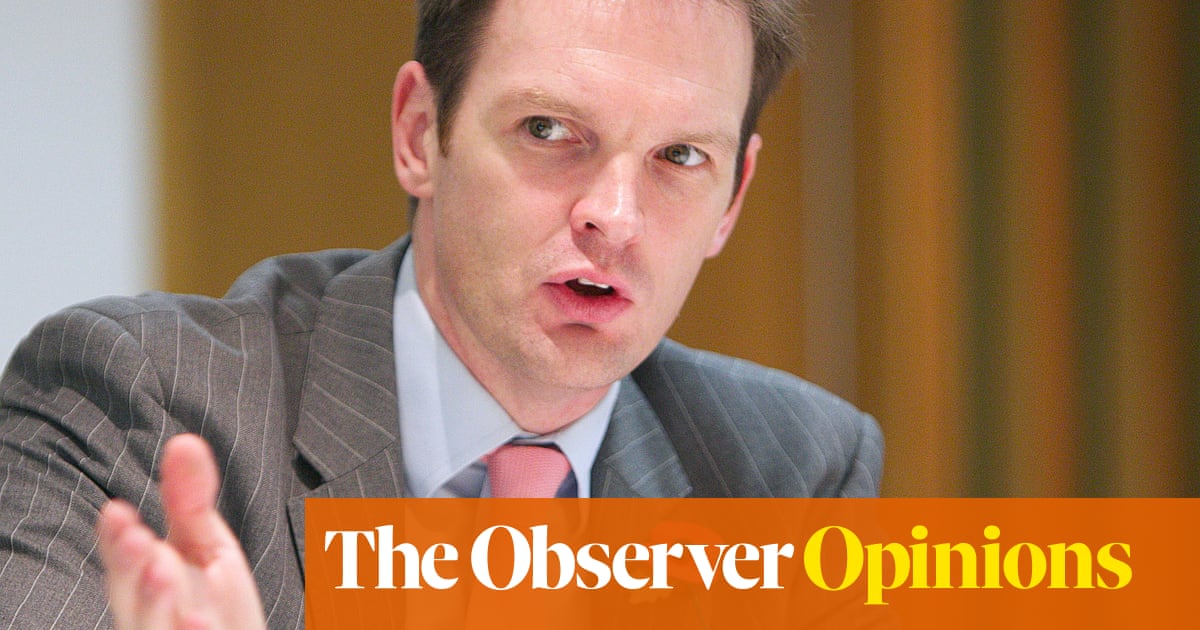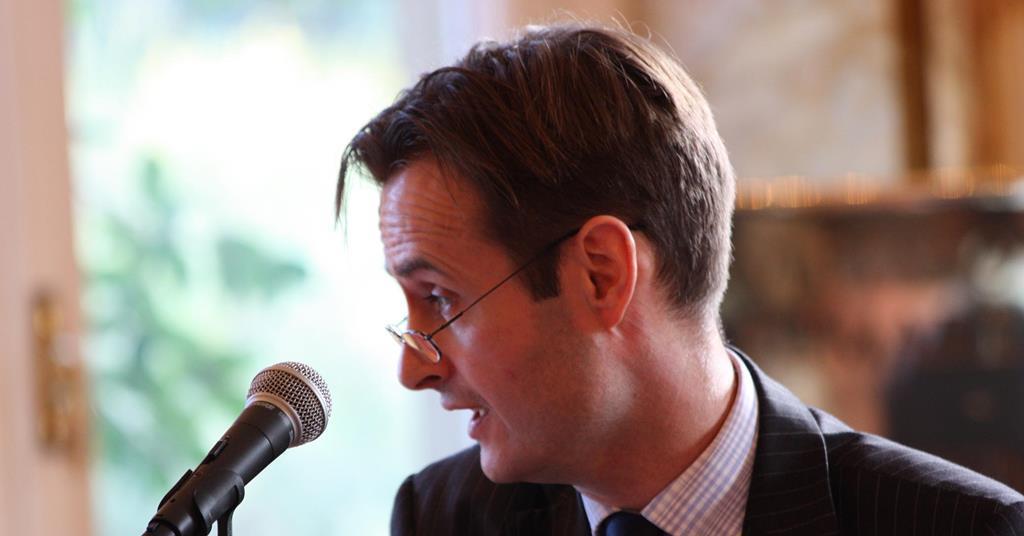Cowper’s Cut 320: Poulter(zeit)geist

Poltergeists are annoying ghosts who go around trashing things and causing destruction. Any resemblance to erstwhile (sub-)prime ministers Boris Johnson or Liz Truss is purely coincidental.
“I find it increasingly difficult to look my NHS colleagues in the eye”
— BBC Politics (@BBCPolitics) April 27, 2024
Former Conservative minister and MP Dr Dan Poulter has quit his party to join Labour. He tells #BBCLauraK he believes that Keir Starmer can be trusted to run public serviceshttps://t.co/CkTHGctZ4k pic.twitter.com/Z1ko5P1InP
Politics in mid-2024 has now given us a companion sprite: the Poulter(zeit)geist.
Dr Dan Poulter, a part-time psychiatrist and Conservative And Unionist Party MP and former junior health minister this week announced that he was crossing the Commons floor to join the Labour Party.

Dr Dan, previously famed in healthpolicyland for his shirt-doffing tendencies and his ‘pecs dance’ moves, has decided to show off the definition of his convictions.
He wrote for The Guardian, “I am proud to still work as an NHS doctor alongside energetically serving as the MP for Central Suffolk and North Ipswich.
“However, just as was the case in the 1990s, what my healthcare colleagues and I see on the frontline of the NHS today is a health service desperately struggling to deliver the care our patients deserve.
“… Over the past two years, the government has too often put the politics of public sector pay ahead of ending strikes with healthcare workers. Political ideology has been put before pragmatism and meeting the needs of patients – who are the real losers from the strikes.
“There has been a failure to address the longstanding pay concerns of NHS staff, and my nursing colleagues in particular, at a time of a cost of living crisis and increasing staff recruitment and retention challenges.
“… It is abundantly clear to me that the Labour party alone has the will and the trust to restore and reform the NHS. That’s why we need a Labour government, and why I believe Keir Starmer must lead that government as our next prime minister”.
Whew.
‘Cut’ readers of long memory may remember the high-profile defection of Conservative MP Shaun Woodward from the Tories to New Labour back in 1999. (The first Tory MP ever to defect to Labour was Alan Howarth, in October 1995; followed by Peter Temple-Morris in November 1997.)
Shaun Woodward ended up co-ordinating Labour’s 2001 general election campaign and being selected for a safe seat: what the future now holds for Poulter, despite a vague-looking promised of a health policy advisory role with Labour, remains to be seen.
In office, but not in power
Given his touted ongoing clinical work alongside his MP duties, it is not unfair to wonder what took Dr Poulter so long to notice the appalling state of the NHS.
But it is a clear sign of the end-times of the Sunak administration: in the neat formulation of another ex-chancellor Norman ‘Non, Je Ne Regrette Rien’ Lamont, PM Rishi ‘The Brand’ Sunak is now very obviously “in office, but not in power”.
NHS England has a plan? It “could be credible”!

The Great Health Policy Stupid-Off between Bob the whippet’s servant and Secretary Of State For Another Six Long Months Victoria Atkins and NHS England stepped up a gear, with the leak to Health Service Journal of NHSE’s plans to really get on top of the English NHS’s waiting backlog.
James Illman’s piece outlines how “NHS England is floating proposals to cut the elective waiting list by nearly 50 per cent to under 4 million over the next five years”. Well, now I bet we’re all really reassured.
What do you mean, NHS England didn’t hit any of their stated targets in the 2022 Electoral Recover Plan on time? Oh you awful cynic.

And for goodness sake, don’t mention the Liberal Democrats’ FOI work given to the Boris Johnson Fanzine, showing that the number of cancer patients waiting four months to start their treatment has doubled since 2020. Because that would disrupt ‘The Power Of Positive Thinking’, which is what NHSE have instead of a plan. (Steve Black’s recent HSJ ‘Mythbuster’ column on this is a cracker.)

And under no circumstances should anybody anywhere read the Financial Times’ subversive nonsense about very long waiting times, written using facts and data and all that sort of silliness. We don’t want people feeling all sad-face!
How does NHSE aim to ensure that we get more of a strategy than ‘and then, a productivity miracle occurs!’, you might well ask. It’s simple: “HSJ understands NHSE’s leadership believes a target of under 4 million could be credible — albeit likely dependent on targeted extra capacity, technology, resolution of strikes and on which other targets are set, especially around emergency waiting times.
Progress could be accelerated by, for example, major outpatient reform to remove many appointments deemed unnecessary and use of technology to overhaul some pathways, officials believe. These could have a similar impact to the likes of faecal immunochemical testing, known as FIT, which is said to be playing a big role in reducing the cancer backlog”.
I highlighted “could be credible” in bold because this is what NHSE are actually doing here: they are bidding for a plausible, ‘comms’-able line. They are doing this because they do not actually have a plan of any kind.
Hope is not a plan, and in dreadful news for NHSE’s senior leadership team, a ‘comms’-able line is not a plan either. Rob Findlay of Insource is one of the best analysts of the English NHS RTT waiting backlog, and his 2017 piece on how you would restore 18 weeks is well worth re-reading.
Meanwhile, NHSE has been keeping itself busy with such counterproductive classics as suggesting a 10% workforce cut to Staffs and Stoke ICB; ordering Mid and South Essex to do the same to 600 posts; putting Manchester ICB into ‘special measures’ and threatening to sack its chief executive who had warned in 2022 that ICBs lacked the tools to hold providers to account; and putting two more huge acute trusts onto the naughty step. (All of these stories courtesy of HSJ.)
Some moves just never get old, do they? You have to wonder whether NHS England’s leaders wonder what a national body charged with running the NHS such as, oh, NHS England, had been doing about all of these rather obviously developing problems. They must have been frightfully busy having meetings about further meetings, which prevented them from taking any timely decisions.

It’s almost as if NHS England’s incentivising massive financial lying got them massive financial lying. Who knew? Some bloke wrote in 2018, “a culture of deliberately incentivising lying – financial or otherwise – has consequences: they will be with the NHS for some time to come.”

Navigating The Storm
NEW @IpsosUK: Navigating the Storm 🌩️
— Trinh Tu (@TrinhIpsosUK) April 18, 2024
The upcoming election will be shaped by the future of Britain's #PublicServices.
We've got a report that dives into public opinion & major challenges the next #government will face.
Find out more 👉 https://t.co/DMW3rdosGL
Pollsters Ipsos have a new report out based on analysis of public attitudes about the future of public services: its title, ‘Navigating The Storm’, gives a strong hint of the contents.
Not being stupid, the public perceives a long-term deterioration in the quality of public services. They are most pessimistic about the future of the NHS, with NHS waiting lists a top priority: 64% of respondents think the NHS services will get worse over the next few years. Presented with the thought of a Keir Starmer Government, those sampled reported that they trust Labour more on improving public services, in the long term. (The long term was not clearly defined.)
Make junior doctors great again!
A letter from senior NHS England leaders is the answer.
What, then, is the question? I’m glad you asked: last week, I highlighted that attention was starting to focus on the NHS’s longstanding shitty treatment for junior doctors looking for their rotation placements. This is not new, but HSJ’s Alison Moore has been among those pushing the issue up the agenda: her daughter is, I understand, training as a doctor.
The NHS is setting out measures to improve the working lives of postgraduate doctors.
— NHS England (@NHSEngland) April 25, 2024
These include improving payroll accuracy, reducing admin burden and enhancing choice and flexibility with rotas. https://t.co/1wekgYwqei pic.twitter.com/kVFI3zT1xQ
And so now, we have The Epistle To The Apostles. Amanda Pritchard, Steve Powis and Navina Evans have put their thoughts down on the highest-quality papyrus taxpayers’ money can buy. ‘Improving The Working Lives Of Doctors In Training’ promises such wild innovations as paying doctors on time; ensuring rota flexibility and cutting pointless administration.
Shut that stable door a bit more vigorously, won’t you? Maybe wedge it shut with some copies of the BMA’s new report on the costs of medical staff attrition to the NHS.
Helen Whateley on social care in ten years’ time
She did it at the Nuffield Trust Summit in 2023, and care minister Helen Whateley has done it again: a truly howlingly bad speech - this time, to the ADASS sporting conference. At least she is consistent.
In this, she asks the audience to think about what they want social care to be like in ten years’ time, while tossing over the fact that most knowledgable people will just reply “available”.
Mrs Whateley bids, “Simplicity, ideology, and slogans grab headlines. But actually, as you will know, care is complex.” One must have a heart of stone not to laugh. It’s not the complexity, Helen: it’s the unavailability.
Recommended and required reading
Nuffield Trust director of strategy Helen Buckingham’s valedictory piece is a very good read.
Practical wisdom from Ken Jarrold in his HSJ piece on the secrets to being a good NHS chair.
Shadow Health Secretary Wes Streeting’s speech to the Royal College of Physicians’ annual conference didn’t yield much of real interest, as HSJ’s report shows.
Conor Sparrowhawk’s mother on the unlearned lessons from her son’s death and poor mental health care more broadly.
Pulse reports that NW London ICB has warned GPs about what they put on social media about same-day GP care hubs.
The long term workforce plan in a nutshell.
— Katie Bramall-Stainer (@doctor_katie) April 26, 2024
A picture paints a thousand words:@libdemdaisy @PreetKGillMP @wesstreeting @andrealeadsom @VictoriaAtkins @theRCN @BMA_GP @rcgp
Patients deserve and GPs need a new general practice deal in England from the next Government. pic.twitter.com/9R61eK0pPz



